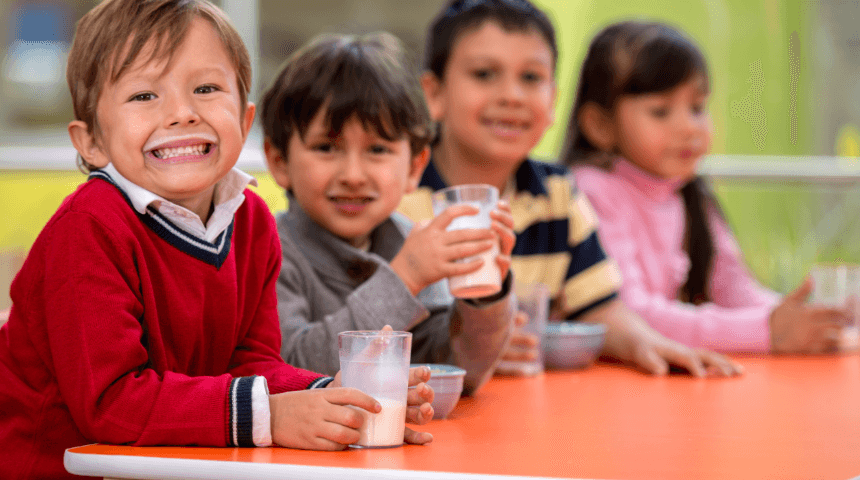Steer Kids Away from Processed Food, Salt and Sugar for Kidney Health
Kidney disease is rare in children and usually tied to congenital abnormalities of the kidneys or urinary tract, but older children and adolescents can develop acquired kidney disease, which can worsen with poor dietary choices.
Processed food, salt and sugar top the list of culprits because they lead to obesity and put additional strain on the kidneys. Instead, a diet rich in fruits, vegetables, whole foods and lean protein will set your child up for kidney health now and in the future.
Healthy Kidneys
The kidneys are located on each side of the spine just below the rib cage, where they filter about a half-cup of blood a minute, removing water and waste to make urine. The urine flows from the kidneys through two thin muscular tubes to the bladder, where it is stored until released.
Healthy kidneys maintain a delicate balance of water, salts and minerals in your blood while also producing hormones that help control blood pressure, maintain strong bones and make red blood cells.
Childhood Kidney Disease
Chronic kidney disease in children is usually linked to a birth defect or genetic disorder resulting in abnormalities of one or more parts of the urinary tract, although infection and injury can also cause childhood kidney disease.
Early disease may be asymptomatic, but as it progresses, symptoms may include:
- Swelling in the feet, legs, hands or face
- Increased or decreased urine output
- Foamy urine due to too much protein
- Pink or cola-colored urine caused by blood
Diagnosis and treatment of childhood kidney disease is important because as the disease progresses, serious complications can develop, including heart disease, high blood pressure, anemia and growth problems.
Say No to Processed Foods
Helping children develop healthy eating habits and maintain an appropriate weight is one of the best ways to ensure kidney health. That means limiting processed foods and sweetened drinks, a major cause of childhood obesity, which can lead to high-blood pressure and diabetes, both significant risk factors for developing chronic kidney disease in young adulthood.
Processed foods have been associated with a higher risk of developing chronic kidney disease, due at least in part to these additives known to make the kidneys to work harder:
- Sugar adds to the caloric load in processed foods, contributing to obesity and its associated problems. Sugar lurks in most refined foods, not just sweets. Check nutrition labels to avoid excessive added sugar.
- Salt (sodium) in high amounts can raise blood pressure, potentially damaging the tiny blood vessels in the kidneys. It also causes the body to retain fluid, which can add further stress.
If a child already has kidney disease, processed foods pose an additional risk because of these additives:
Potassium is a mineral that helps muscles (including the heart) work, but too much can lead to serious problems, including heart attack. Your kidneys regulate potassium levels in the blood, but disease-damaged kidneys can’t do that as well, so children with kidney disease need diets that regulate potassium levels. Potassium is sometimes added to processed foods as a salt substitute or preservative. It also occurs naturally in many foods.
Phosphorus, another essential mineral, helps build and maintain bones, and the bones, intestines and kidneys combine to maintain healthy blood levels. When kidney function declines, excess phosphorus is not excreted efficiently, and blood levels rise, which could lead to bone and joint pain, muscle cramps, seizures and an abnormal heart beat. High phosphorus levels can also lead to deposits that can damage kidney tissue. Phosphorus is often added to processed foods to preserve moisture or color and to stabilize frozen foods, including dairy and bakery products.
Children with kidney disease need diets that limit sodium, potassium and phosphorus to prevent further damage. They also may have trouble processing protein. Ask your doctor to refer you to a dietitian to help develop a meal and snack plan for your child that contains the right amounts of each.
Getting Kids To Eat Healthy Foods
The best way to keep your child’s kidneys healthy is to provide a diet rich in lean protein, fruits, vegetables and whole grains while avoiding foods that overwork them. Here are some tips to make that easier:
- Flavor foods with herbs and spices to train children’s tastebuds away from salt.
- Serve fish, poultry and eggs along with low-fat dairy products to provide the protein your child needs without added fat. Limit cured meats, which are high in sodium.
- Involve your child in food preparation, giving them opportunities to touch, smell and explore foods that are new to them.
- Give your child a water bottle and encourage daylong hydration.
- Offer a new food (a vegetable, for example) with a familiar one (a dip, dressing or seasoning)
- Don’t push. Your job is to provide healthful food; your child gets to decide how much to eat.
- Try and try again. It may take many appearances and tastes before a child adapts to a new food, so don’t give up.
Remember, you’re in it for the long haul, setting your child up for lifelong health.
This content is not AI generated.
Are You Interested in Learning More?
Sign up for our e-newsletter for more tips and best practices from pediatricians.
Sign Up Here











